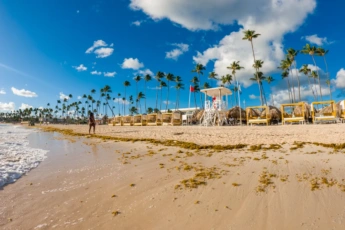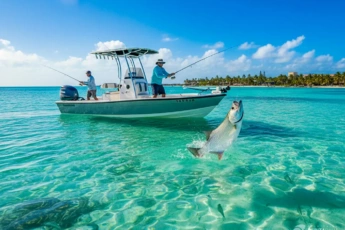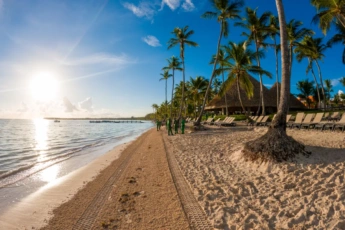What Do You Have to Know Before Traveling to the Dominican Republic?
Must-Know List about the Dominican Republic
The Dominican Republic is one of the leading world touristic destinations. No matter what time of the year it is, this country always welcomes you with the perfect weather: hot sun, transparent turquoise-blue ocean water, white-sand beaches and mountain valleys. The Dominican landscapes are so different and so charming!
Do you want to discover all secrets of this wonderful tropical paradise and have a vacation of a lifetime? Do you want to become an expert in the Dominican daily living, customs and entertainments? Do you want to feel like at home on the tropical island? Here is what you must know before visiting the Dominican Republic!
1. “Tranquilo” rule
Before visiting the Dominican Republic, make sure you have left all your worries and troubles at the port of your departure because in the Dominican Republic everyone feels “tranquilo” (from Spanish “tranquilo” – “calm, quiet, and peaceful”). This word is often used when somebody asks you about how you are feeling today.
No matter how many troubles a Dominican might be experiencing, the reply will always be “tranquilo” (for men) and “tranquila” (for women). If you wish to feel like at home on the island, learn this word and follow this rule to form part of the island’s peaceful flow of life, serenity and eternal summer joy…
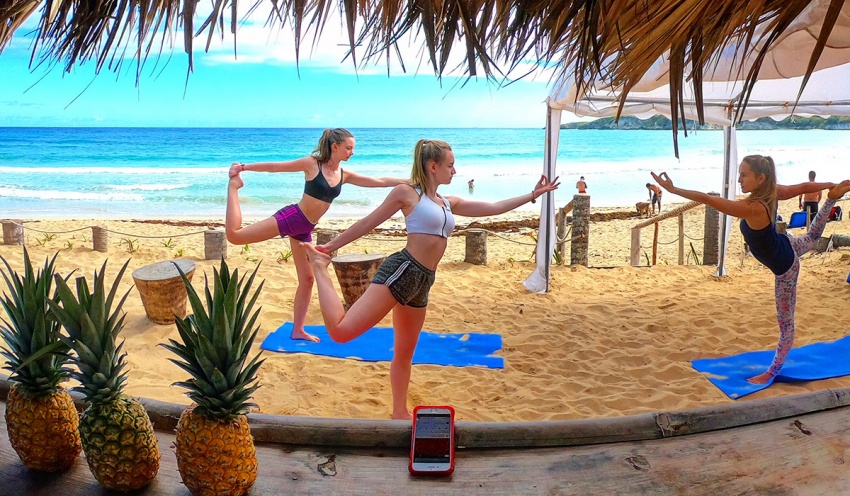
Macao Beach, Punta Cana, the Dominican Republic
2. “Don’t eat/drink me” rule
This sunny piece of land features so many juicy sweet fruits that you just can’t stand trying them all at a local fruit stall… Wait! First, read this rule and then make your choice.
To avoid parasitic infections, make sure you wash all fruit and vegetables with boiled potable water several times. You may also add vinegar or a bit of baking soda to water and then rinse fruit. It will help you to get rid of any particles that cause stomach infections. It is also recommended to peel fruit when possible.
The “Don’t Eat/Drink Me” rule
| Tip | Reason | Precautions | Additional notes |
|---|---|---|---|
| Wash fruits & vegetables | To prevent parasitic and stomach infections. | – Wash with boiled potable water. – Add vinegar or baking soda for better cleaning. – Rinse thoroughly. |
Always peel fruits when possible to avoid contaminants on the skin. |
| Drink purified water | Tap water may contain harmful bacteria and parasites. | – Always use bottled water for drinking, cooking, brushing teeth, and washing babies. – Avoid ice made from tap water. |
Bottled water is affordable and widely available across the country. |
Make sure you always drink purified bottled water. Never drink tap water. Buy bottled water for cooking, drinking, brushing teeth and even washing babies. The price of bottled water is affordable: all local residents buy it on a regular basis.
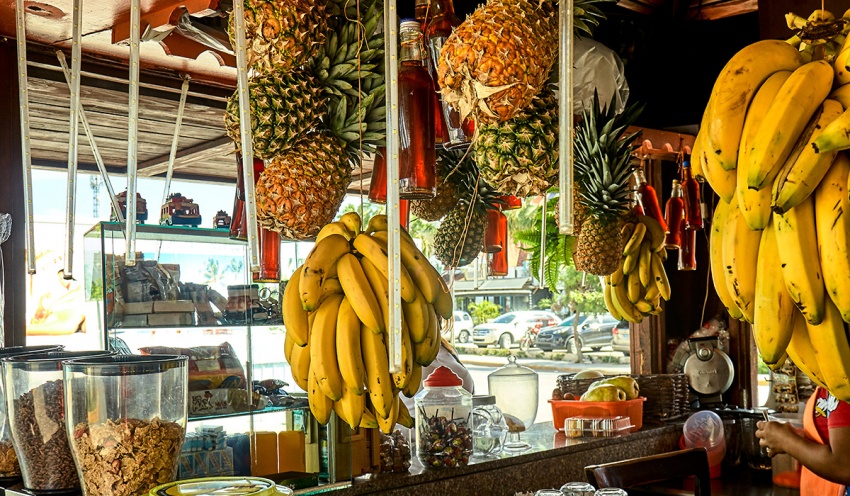
Fruit-kiosk in Punta Cana, the Dominican Republic
3. “Don’t call me “Gringo” rule
As soon as you make your first step on this tropical land, you are welcomed by cheerful smiles and friendly “amigos” (from Spanish – “friends”) who seem to be ready to help you with everything… From carrying your luggage or waiting in the line instead of you to recommending you “the best” services, places to visit, where to eat etc. Here let us consider more details.
The truth is that the locals are indeed a very friendly, sociable, and always happy nation. They do love tourists and want to help all visitors to have a good time on the island, but not for free… Almost any service and act of courtesy especially in touristic areas should be paid for. The Dominicans dare to ask for “propina” (from Spanish – “tip”) right in your face. It especially concerns foreigners from Europe and the United States (named “gringo”).
So, if you look like a typical “gringo”, be ready to determine from the very beginning if you need or do not need the service you are offered. Otherwise, you will be surrounded by “servants” whom you actually do not need, but to whom you have to give tips for their imposed service.
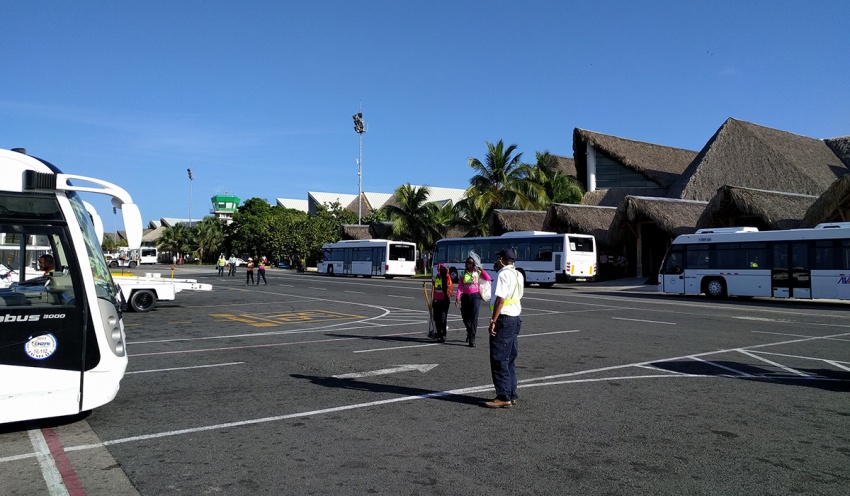
Airport in Punta Cana, the Dominican Republic
4. “Woman is always right” rule
The Dominicans are very respectful to women and all men dream about having a daughter. That is why don’t be surprised when in some situations women are considered to be right although they are not. Be ready to give your seat to women when you are in some office, in public transport or wherever you are. Pregnant women never stand in line.
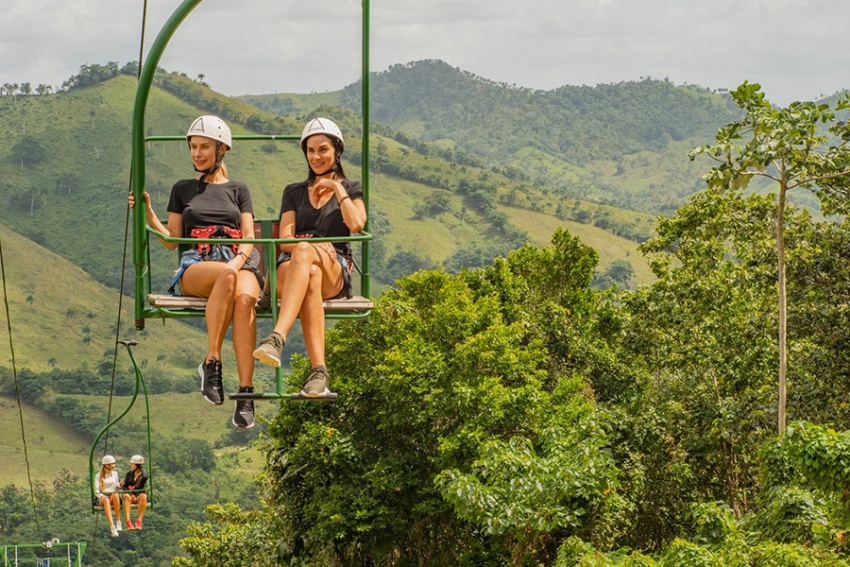
Chairlift in La Hacienda Park, Punta Cana, the Dominican Republic
5. “Explore it all” rule
If you have not seen snow in the Dominican Republic, it means you have not visited this country. Yes, it is true that the Dominican Republic is famous for its perfect white-sand beaches. However, its mountain valley landscapes are also amazing! How about going on an expedition to Pico Duarte (Duarte Peak) – the highest peak in the Dominican Republic and in the Caribbean?
If you are not ready for such challenge yet, start from exploring Constanza – the highest altitude town in the Caribbean region, which features cool temperatures, cabins with chimneys for the single digit night temperatures, and an agricultural landscape with the fields of vegetables, fruit and flowers. Driving around this province brings you so much pleasure! The mountain villages boast unique breath-taking views over the fields. That is why Constanza is often called “the Switzerland of the Caribbean” or the “Enchanted Valley”.
Don’t be afraid of leaving the beach for a day and explore a tropical jungle on your way to El Limon waterfall, a cave lake in the surroundings of Punta Cana, or observe real humpback whales of Samaná! The Dominican Republic is so different that you can’t miss this opportunity to explore it all! Check our unique excursions around the Dominican Republic here.
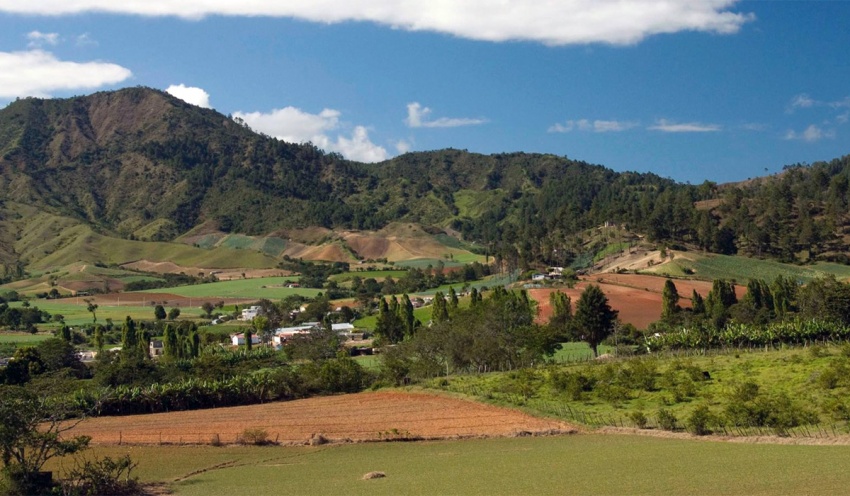
Jarabacoa and Constanza, the Dominican Republic
6. “Take care on the roads” rule
Traffic rules are often neglected on Dominican roads, which means you must be very careful when driving in the Dominican Republic. Although moto-taxi (in Spanish – “motoconcho”) is an economic and quite popular means of transportation here, it is also very risky. In 2017, 66.7% of deaths in Dominican traffic accidents involved people on motorcycles (Source). Similar numbers are given for the following years as well.
Even when you drive a car, take care and look around before making any maneuver. When you rent a car, make sure it has full insurance (“seguro full” as locals say). If you are planning a long trip, take cash to pay a road toll (some roads are not free) and just for cases of some damage (for example, punctured tires).
On paid roads, there is a special state road service functioning that is ready to help everyone who is in accident free of charge. It is called “MOPC” – Ministry of Public Works and Communications. When you pay a toll, you kind of get a guarantee of that if you suffer an accident on the road, this service will be there to help. Don’t throw away a payment receipt – it features a phone number you can reach the road service at.
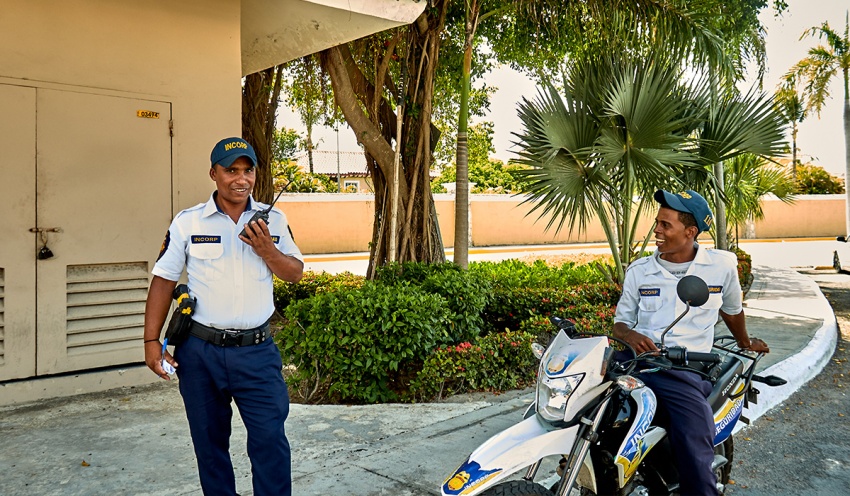
Be very careful when driving in the Dominican Republic
7. “License everywhere” rule
No matter what kind of service you are buying in the Dominican Republic, before paying your money for it, make sure a provider has a license. Otherwise, you risk losing your money, not getting a service promised or even risking your health if something happens on an excursion or on the road.
An original touristic license tells a lot about the excursions provider. If an excursion seller cannot give you a license number or “RNC” (from Spanish “RNC” – National Taxpayer Registrar) number, consider other provider without any doubts. Operators without license offer lower prices, but not guarantee your security and safety during the excursion.
They often lack civil responsibility insurance and may cancel your tour without previous notification and let it go. Paying a bit more to the licensed operator, you get the guarantee of reimbursement if the tour is cancelled or postponed. Finally, you get what you pay for.
The same concerns car rental agencies. Avoid renting a car from whoever in the street. Ask a car rental agent for a license and make sure it is valid. The car rental agent should also show you an insurance for the car and a car license plate. Both documents should be always in the car. If you do not have them, you will be fined by the road police.
8. “Mañana” rule
This word is one of the most popular among the Dominicans and undoubtedly one of the most often used. “Mañana” means “tomorrow”. The Dominicans are strongly against a proverb that says, “don’t put off till tomorrow what you can do today”. The tropical climate, the heat and the sun create excellent conditions to relax and postpone everything that can be put off till tomorrow.
Funny enough that “tomorrow” sometimes never comes: many things are not just postponed, but actually never done. That is why when somebody promises to do something “mañana”, take care: it is highly probable he or she will never do it.
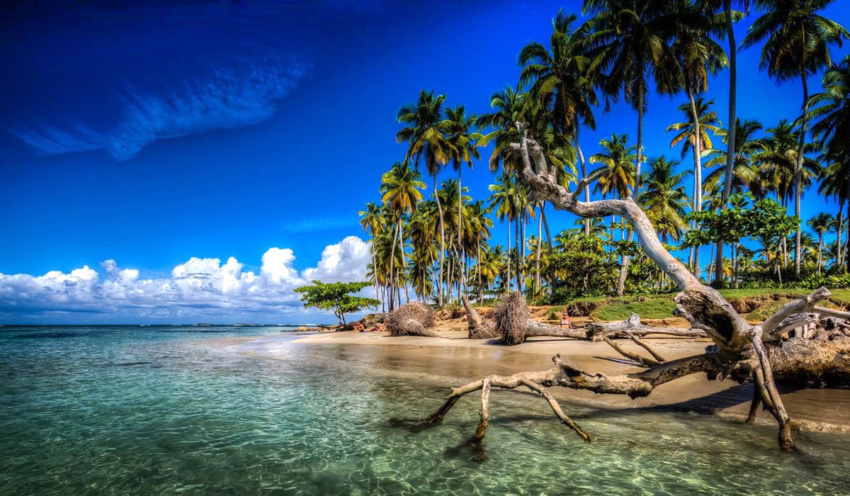
Samana, the Dominican Republic
9. “Patience is our all” rule
Although the Dominicans are quite noisy and speak loudly, they do it mostly by custom. Speaking loudly does not always mean disputing or disagreeing. On the contrary, the Dominicans have enough patience to stay polite and calm in conflicts and controversies. If for example, they see that a tourist is becoming angry out of nothing, they may make a pause, observe with surprise this type of behavior and consider it as something foreign and uncommon for their native land.
However, mind that sometimes the Dominicans “explode” and indeed have verbal confrontations and even fights. But it is hardly probable you will witness this during your stay in this generally peaceful country.
10. “Los tres golpes” rule
Are you used to eating a heavy breakfast? If not yet, you will get used to it in the Dominican Republic because everyone who visits the country just must try a traditional Dominican breakfast called “Los tres golpes” (literally from Spanish – “The three hits”). Such breakfast includes mangú with cheese, bologna, and eggs. Mangú is a traditional Dominican dish typically served for breakfast. It is prepared of boiled (ripe or green) plantains.
The Dominicans like eating heavy food for breakfast, lunch and dinner. Unlike the Europeans who often eat light snacks between breakfast and lunch and between lunch and dinner to reduce portions during the main meals, the Dominicans prefer eating heavy meals three times a day.
If for breakfast you are treated to “the three hits”, for lunch be ready to enjoy “La Bandera Dominicana” (literally from Spanish – “The Dominican Flag”). Don’t be afraid – nobody will make you eat a national flag. This is the name of a traditional Dominican lunch consisting of the dishes that resemble the three colors of the national flag: red, white and blue. Such lunch is composed of Dominican white rice and red beans with chicken. Although chicken is not blue, any meat, fish or poultry is associated with this third color. The dish is also accompanied with some green salad.
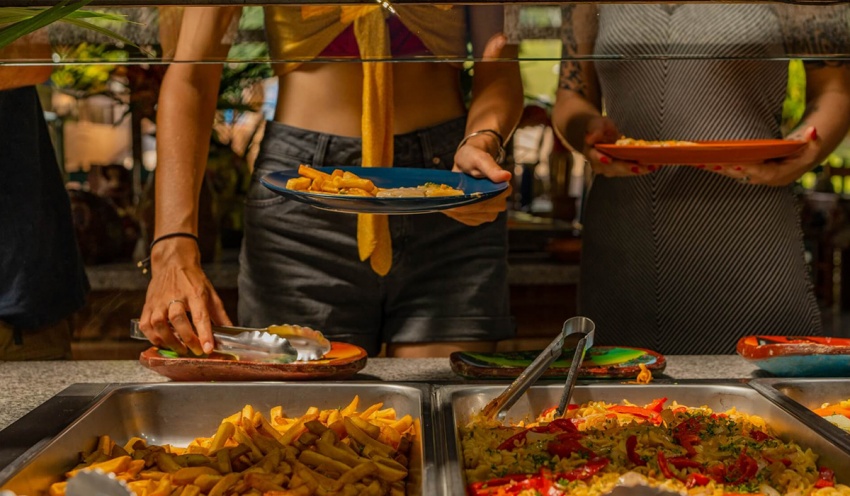
Heavy breakfast in the Dominican Republic
11. “Copy here, copy there” rule
The Dominican Republic, especially its touristic areas, is quite a secure country. You may feel safe in the touristic zones. Anyway, we strongly recommend making photocopies of all your documents (passport, ID, driver’s license) and keep the original documents in a safe box in your hotel room or apartment.
When driving, it is better to have an original driver’s license, but as for other ID documents, a copy will work just fine. This precaution will safeguard you from any inconveniences associated with document loss, robbery and other events that may occur when you are outside.
12. “Safety goes first” rule
While some tourists prefer staying at all-inclusive resorts and buy travel packages, others prefer travelling on their own and book their lodging through vacation rental platforms or even search for it right upon arrival. Anyway, when considering different accommodation options, prioritize safety. Pay attention to different platforms and websites specialized in properties of Punta Cana, for example Everything Punta Cana website.
To feel safe and secure in Punta Cana, do not book lodging outside gated communities. Your safety must be your first priority while in the foreign country. Consider secure gated communities with 24/7 security service and video surveillance. Thus, you will not only avoid robbery and petty theft, but will also stroll quietly in the evening and not be afraid of returning home late at night. Consider the areas of Los Corales and Cocotal when looking for budget-friendly and luxurious apartments and villas.
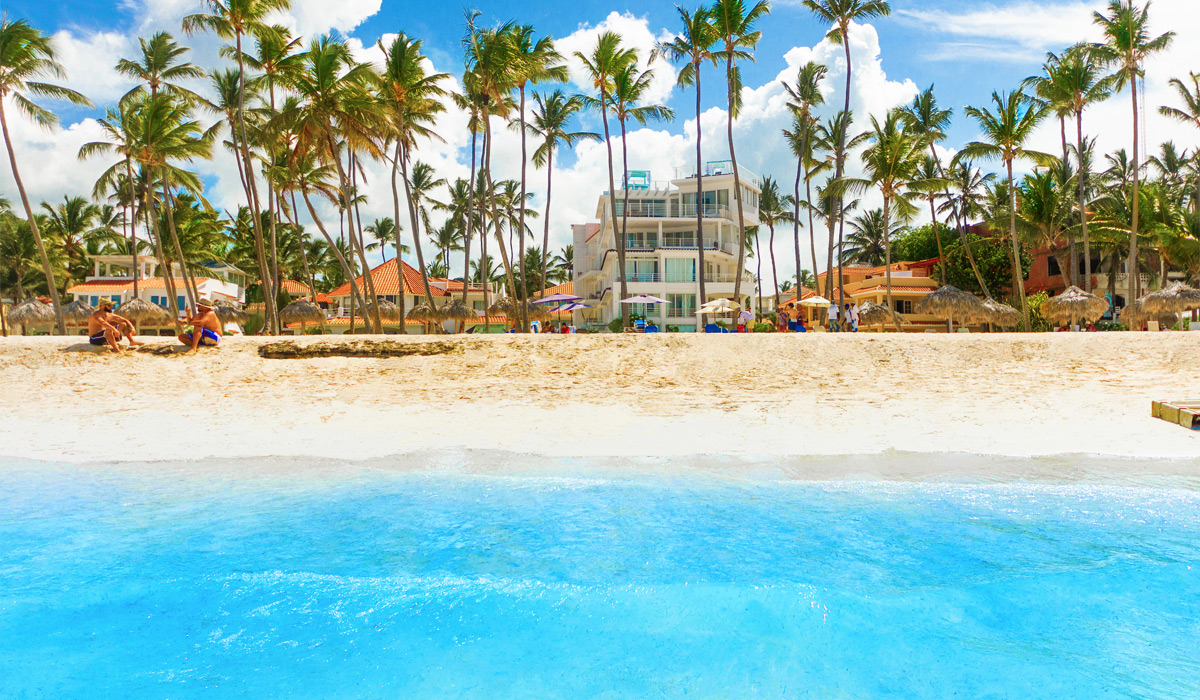
Oreuga Beach. One of the safest place in Punta Cana, the Dominican Republic
Conclusion
This list of interesting facts about the Dominican Republic is obviously not exhausted. It is hard to imagine how many surprising things are waiting for you here. Every province of the country is a unique link of the same chain that connects people living in different parts of the Dominican land. A mix of traditions, customs and interests is accompanied by the same deep and true love felt by every Dominican to their homeland.
You will be enchanted by their hospitality. Feel free to ask the locals about their daily living – they will be happy to share their experience with you. Thus, you may learn many new things about this land and will probably share your impressions with us to make this must-know list even more complete.
Updated on: . Author:

